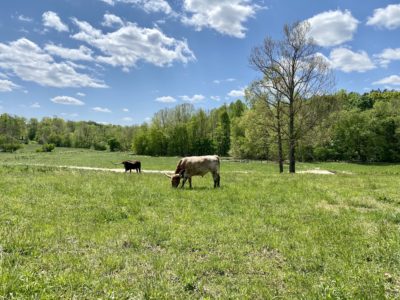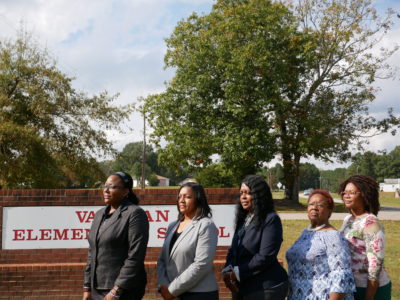

Share this story
- Placing recent graduates in underserved high schools, @AdvisingCorps in North Carolina seeks to boost postsecondary access and attainment among the state’s high school students.
- "As a near-peer college adviser, I meet one-on-one with students to guide them every step of the way as they look for a postsecondary match and fit — be that community college, military service, or a four-year university.” @AdvisingCorps
|
|
Lyric Larson graduated from Caldwell Early College High School last month and is headed to Western Carolina University this fall with the Jack Kent Cooke Foundation scholarship in hand.
Larson said pursuing a bachelor’s degree had always been a dream of hers, but living in rural North Carolina with limited resources and funds created challenges. When it came time to apply for scholarships and colleges, Larson said having the help of College Advising Corps (CAC) adviser Selena Kongmany made all the difference. Kongmany assisted Larson with applications, helping her identify resources and making sure Larson knew what she needed to complete each one.
Larson is among the thousands of students across the country who receive assistance from CAC advisers each year. The national nonprofit places recent college graduates in underserved high schools across the country to help students plan and prepare for their next steps after high school.
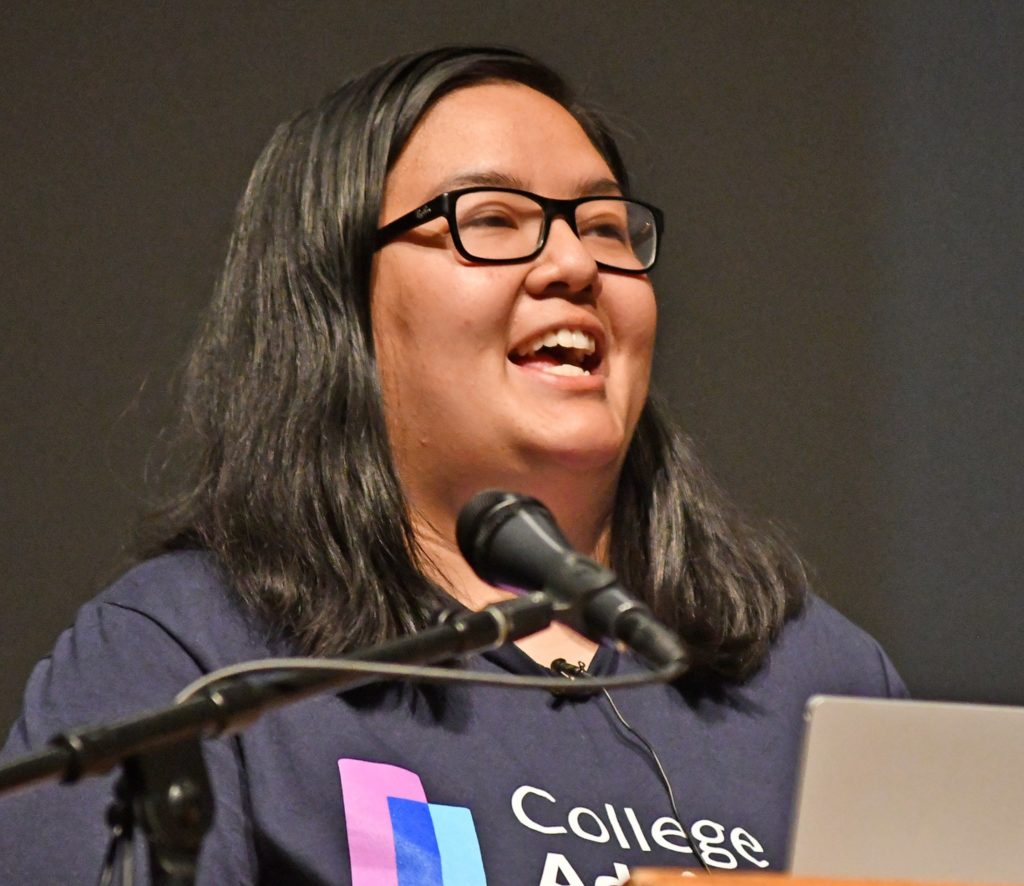



CAC advisers do not replace high school college counselors. Instead, advisers work in conjunction with the counselors on campus – helping fill the college counselor gap. According to College Advising Corps, nationally the student-to-counselor ratio is 415:1. That means many students have, on average, only 20 minutes a year with a college counselor.
How College Advising Corps works
College Advising Corps dates back to 2005 when Dr. Nicole Hurd who, at the time, served as dean and director of the Center for Undergraduate Excellence at the University of Virginia (UVa), started the “College Guide” program. With the help of the Jack Kent Cooke Foundation, the program placed 14 recent UVa graduates in rural Virginia communities to help low-income, first-generation college students with the college planning and application process.
The program was a success, and in 2007, the Jack Kent Cooke Foundation, with support from the Lumina Foundation, expanded the program nationally and moved CAC’s headquarters to the University of North Carolina at Chapel Hill.
College Advising Corps’ mission is simple: “Increase the number of low-income, first-generation college, and underrepresented high school students who enter and complete higher education.”
Postsecondary attainment is a pathway to economic opportunity. The lifetime earnings of someone with a college education are greater than someone with only a high school education. Not only does postsecondary attainment help move families economically, it is also linked to better physical and mental health, relationships, and civic engagement.
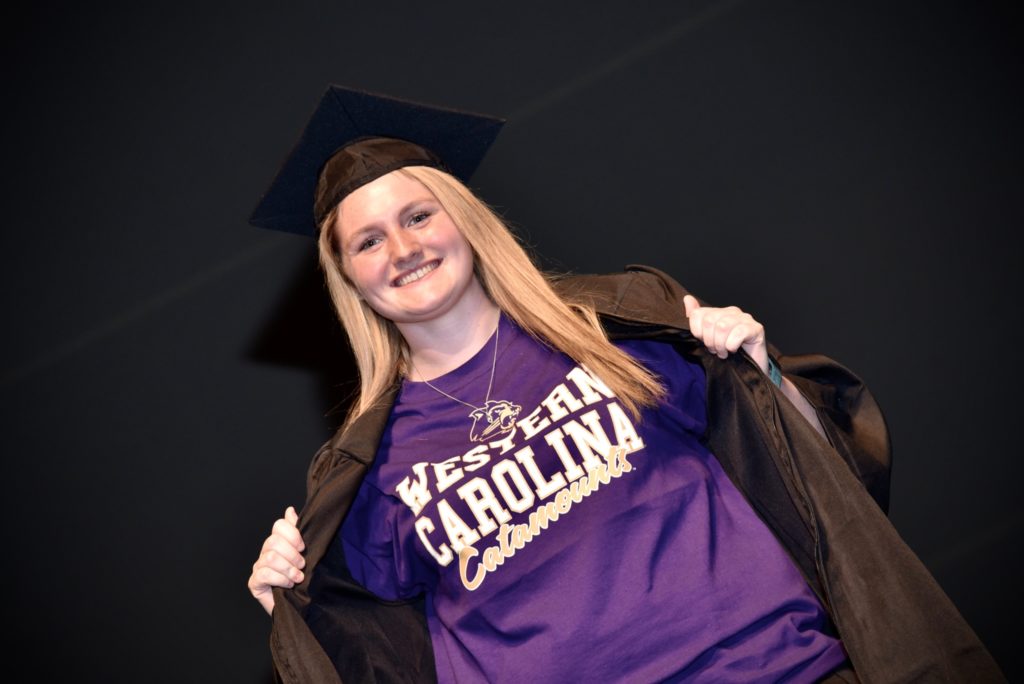

CAC works with partner universities and high school students to provide them with personalized guidance on college admissions, financial aid, and enrollment.
During the 2020-2021 school year, CAC advisers served more than 223,000 high school seniors. That same year, CAC partnered with 30 universities nationwide and placed more than 820 advisers in over 775 high schools in 19 states.
The organization uses two program models to serve high school students – in-school and virtual. The in-school model places trained, recent college graduates on high school campuses. Advisers collaborate with school staff to connect with students, helping them navigate the college admissions process. This includes help with FAFSA applications, SAT/ACT fee waivers, and more. Advisers provide guidance in addition to the existing counseling staff at the high school.
Virtual advisers connect with students via video chat, email, telephone call, and text messages.
The service provided by the advisers is free to the high schools and the students and is funded through the AmeriCorps program. Advisers encourage high school students to explore all postsecondary options, including obtaining credentials from two- and four-year institutions, career pathways, and military enlistment. They work with students to develop a list of choices that match their future goals.
College Advising Corps in North Carolina
North Carolina is predominantly rural. According to the N.C. Rural Center, 78 of the state’s 100 counties are considered rural.
Students and families in these areas often face unique challenges, including fewer health care options, a lack of jobs that offer family-sustaining wages, unreliable transportation, and inadequate broadband internet.
While nationally, high school graduation rates in rural communities are 4% higher than the national average, students from rural areas are not attending college at the same rate as those in urban and suburban areas.
But low college attendance is not just a problem in rural North Carolina. Only 41% of North Carolinians aged 18-24 are enrolled in a postsecondary institution, placing the state 28th among all states in 2019.
To boost college access and attainment, CAC places recent college graduates in underserved high schools in rural, suburban, and urban areas across North Carolina.
CAC has five partner universities in the state: Appalachian State University, Duke University, North Carolina State University, University of North Carolina at Chapel Hill, and University of North Carolina at Wilmington. Partner universities typically recruit from their own pool of recent graduates to fill adviser positions, though several recruit from any North Carolina institution.
At least one adviser is located in 72 of the 100 counties. There are currently 124 advisers in 140 high schools across the state, and that number is expected to grow. Katrina Thompson, Director of North Carolina’s College Advising Corps, said the plan is to be in 73 counties by 2023 with a goal to expand to more counties by 2024.
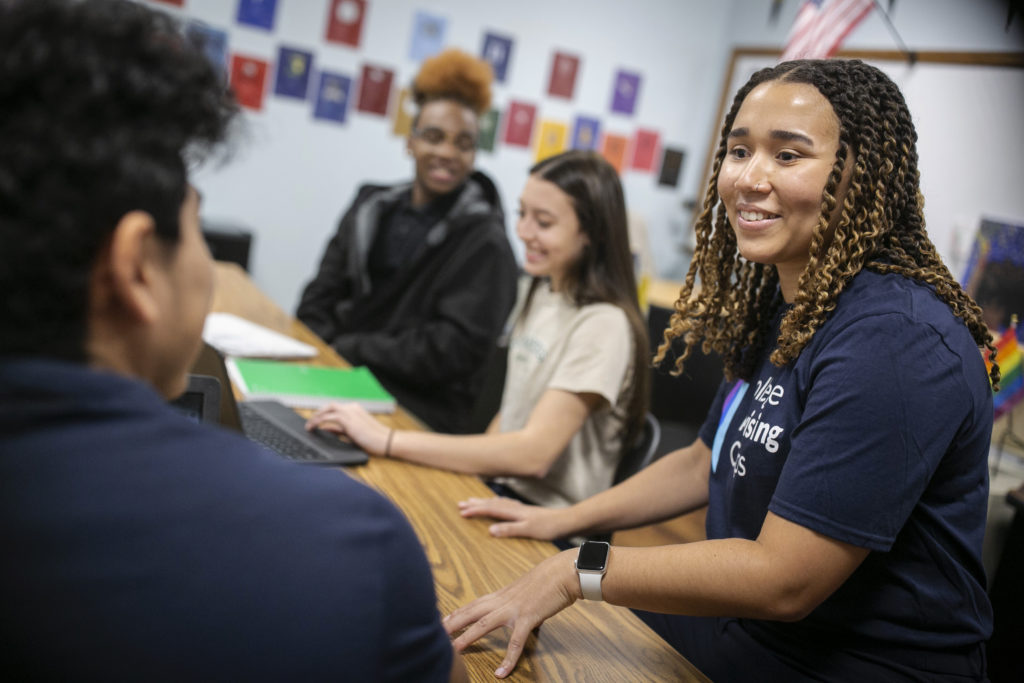

Becoming an adviser in North Carolina
Kallie Kressly is one of Appalachian’s College Advising Corps’ advisers and serves a small K-12 charter school in Crossnore. According to a recent perspective by Kressly, the majority of the students at the school are full-time residents of the Crossnore Home for Children and are in custody of the state. Kressly said the students she works with often have adverse circumstances that cause significant barriers to postsecondary access, planning, and enrollment.
Like Kressly, North Carolina CAC advisers serve a variety of students who face multiple challenges when it comes to the college planning process. Planning can include a host of activities from scholarship and college applications, FAFSA, residency determination forms, and more. The advisers work full-time in high-need high schools for two years.
“As a near-peer college adviser, I meet one-on-one with students to guide them every step of the way as they look for a postsecondary match and fit — be that community college, military service, or a four-year university.”
– Chelsea Vickers, CAC adviser
North Carolina university partners with College Advising Corps are still recruiting recent college graduates to fill adviser positions. Recent graduates interested in applying to become a College Advising Corps adviser in North Carolina can visit the CAC-North Carolina recruitment page. Links for job postings at each N.C. university partner can be accessed through the recruitment page.



